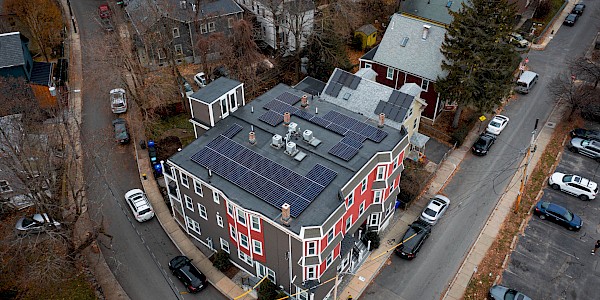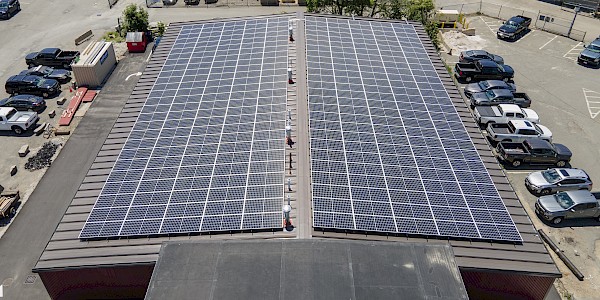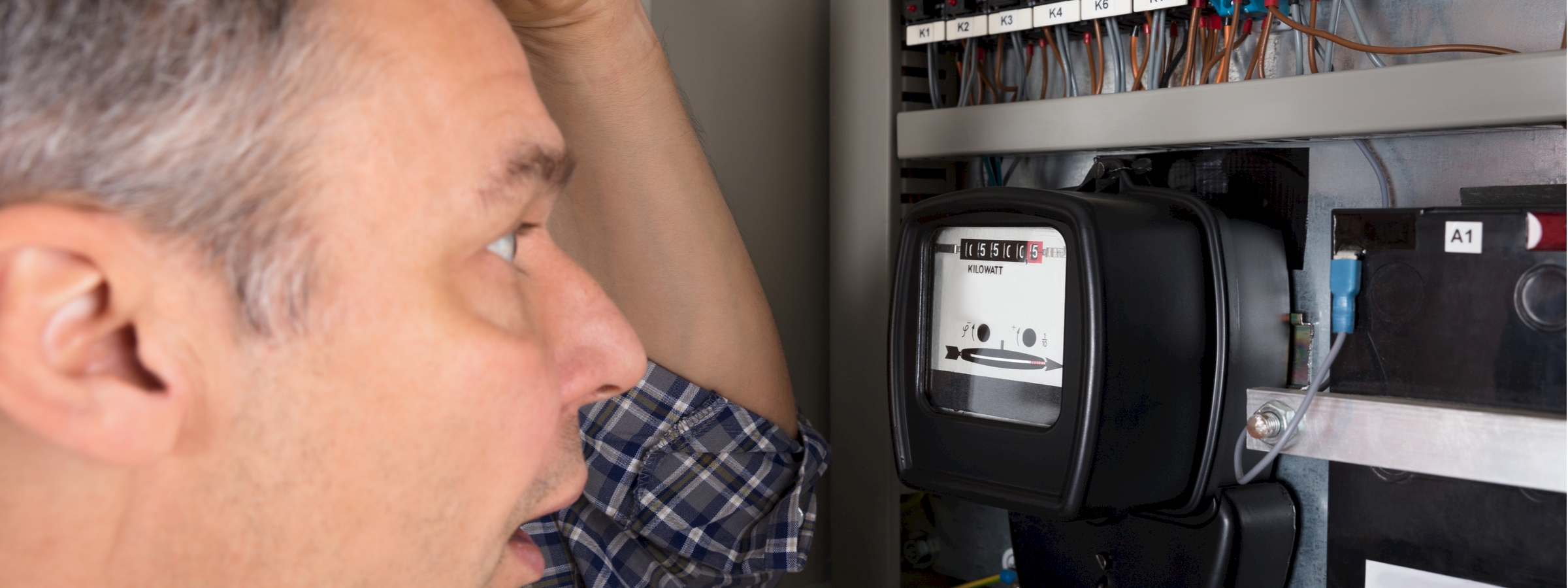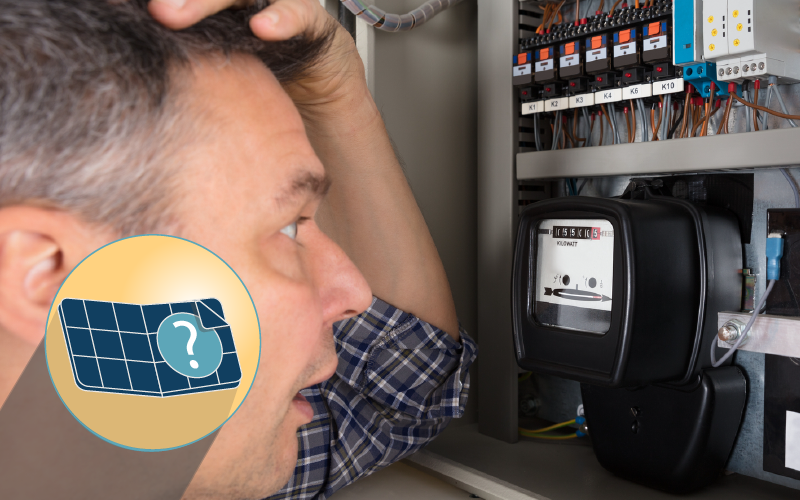What Is Solar Net Metering?
Oct. 15, 2019
Solar energy can benefit many aspects of your everyday life, even here in Massachusetts. By utilizing clean, renewable energy in your home, you can greatly reduce your carbon footprint and do your part to slow the effects of climate change.
But did you know that even the excess electricity your solar PV (photovoltaic) panels produce can further reduce your energy costs? This process is called net metering and is one of the most valuable benefits of owning a custom-designed solar PV system. But how does net metering work?
Massachusetts Net Metering Explained
The Solar Energy Industries Association (SEIA) explains net metering as:
a billing mechanism that credits solar energy system owners for the electricity they add to the grid. For example, if a residential customer has a PV system on the home's rooftop, it may generate more electricity than the home uses during daylight hours. If the home is net-metered, the electricity meter will run backwards to provide a credit against what electricity is consumed at night or other periods where the home's electricity use exceeds the system's output. Customers are only billed for their "net" energy use. On average, only 20-40% of a solar energy system’s output ever goes into the grid. Exported solar electricity serves nearby customers’ loads.
Basically, when you have a solar system installed, the electric company installs a bi-directional meter that can "tick backward," giving you a credit for the excess energy you produce. This net metering credit is then used to offset the grid-supplied energy your home uses overnight.
Many solar panel system owners are out of the house during the daytime, when a solar system typically produces the most energy. By utilizing net metering, if you produce more energy than you use in a month, you'll see that your total usage on your energy bill is negative. Utilities determine this by taking the current reading and subtracting the previous reading for a total usage calculation.
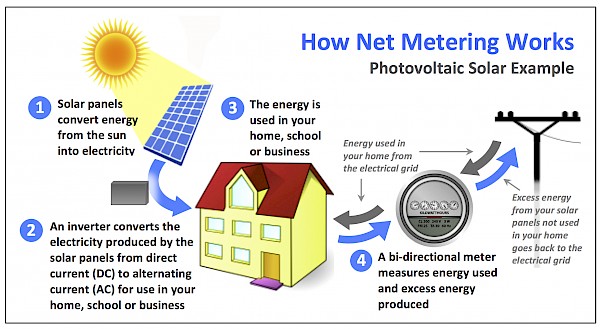
State Utilities vs. Municipality Utilities
According to Massachusetts state law, net metering in Massachusetts is required by all regulated state utility companies, but not by utility companies run by municipalities.
So, if your electric utility bill comes from:
Then you will be guaranteed net metering if you install solar panels on your home.
However, if your electricity service is from one of these municipality cities, the net metering program may not be offered (though many are pro-solar net metering):
If you live in one of these Massachusets towns, find your utility company in this government-issued list to determine if net metering is offered by your electricity supplier, or municipal light plant (MLP).
Designing Solar Installations with Net Metering in Mind
Even if net metering isn’t yet offered in your area, it shouldn't deter you from going solar. When designing your new solar installation with Boston Solar, net metering should be taken into account when determining how big your solar system should be. If there is no net metering, then you wouldn't want a system that produces more than your average monthly electric usage.
Although it may not affect many residential solar customers, there is a net metering cap based on the size of your solar electric system. If you are looking to install a system larger than 10kW, you will need to submit an application for a cap allocation (ACA) to the Department of Public Utilities — but again, a system this size is generally reserved for large scale projects, like solar farms or commercial installations.
Still Have Questions About Net Metering & Solar Energy?
Want to learn more? Fill out our form to the right and we will give you a call to discuss your specific situation. Remember, aside from net metering, you also have access to the federal tax credit, up to $1,000 state tax credit (in Massachusetts), and the SMART program. Check out our other blog posts for more information about those solar incentives.
_____________________________________________________________________________________
Looking to shed some light on net metering in your area? The number one Massachusetts based solar installer has the answers you’re looking for. Call Boston Solar at 617-858-1645 or contact us.

